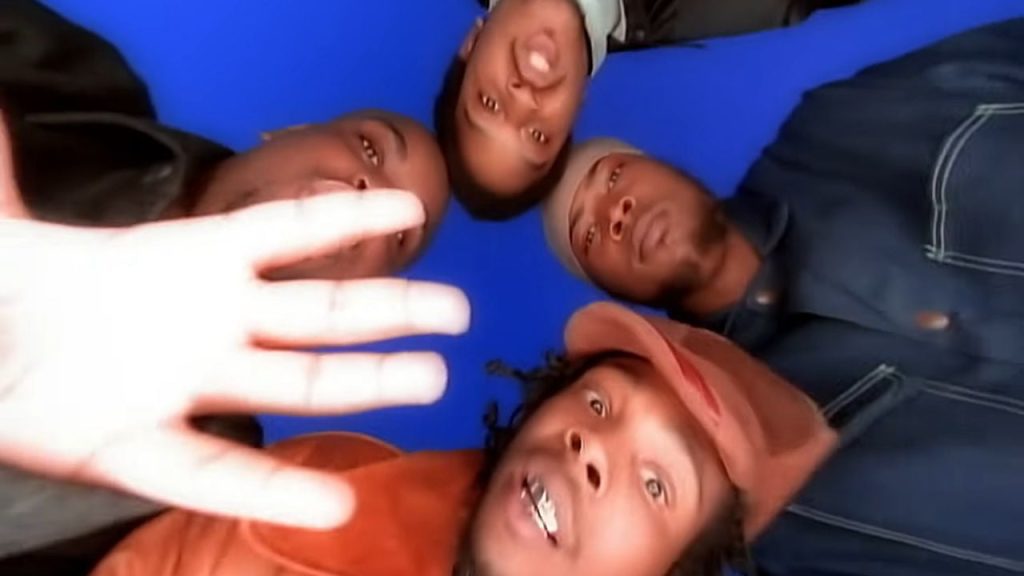
Goodie Mob recently sat down with SOHH to discuss various aspects of the music industry. Khujo Goodie, Gipp, and T-Mo delved into topics such as the state of the modern hip-hop world, the art of hip-hop sampling, and the influence of Drake‘s success. In this exclusive interview, the members shared their perspectives on the lack of substance in hip-hop and the comparison between Drizzy and Michael Jackson regarding sales.
The Lack Of Depth In Hip-Hop
During a sit down with SOHH, the Goodie Mob group members shared their insights on the perceived lack of depth in hip-hop and the comparisons drawn between Drizzy and Michael Jackson regarding sales. Recently, Juicy J sparked discussion of rap sales declining by 40% now, where Wallo 267 joined and agreed, allowing hip-hop fans to discuss the state of the genre further.
As the conversation went on with Goodie Mob regarding declining rap sales, Khujo Goodie granted his take on the topic. Khujo expressed his concern about the excessive focus on “unnecessary” content. He stated:
“It’s too much unnecessary stuff happening.” T-Mo further added, “It’s the same thing back to back, coming from every direction. So it’s ratified [the] same subject matter.”
Drake Vs. Michael Jackson
When asked about Drake’s success and his comparison to the late Michael Jackson in terms of sales as the Canadian artist embarked on surpassing the King of Pop for most No. 1 hits on Billboard 100 by a male solo artist, Gipp and Khujo Goodie acknowledged the validity of the comparison. Gipp emphasized:
“That boy has stayed consistently hot since he came out. Like, I haven’t seen it in my career. Nobody has stayed hot like Drake for ten years straight, but if you think about it, he attacked the area that everybody left vacant.”
Khujo shared his perspective when asked about comparing physical album sales to streams, expressing:
“In my opinion, you can. Because it’s a whole system that they’re using now, but you’re still moving product; but it’s cyber product that you’re moving.” He continued by acknowledging the similarities in the strategies used, stating, “He’s been doing the sh*t Mike has been doing, making hits and coming out with the fresh stuff, and making people wanna be like him.” Khujo concluded by affirming that it is indeed a “fair comparison.”
Sampling In Hip-Hop
The iconic Atlanta rap group also touched upon the topic of hip-hop sampling. Gipp expressed that sampling can be beneficial for the “original artists,” while mentioning Teddy Riley and Michael Jackson as examples of artists who have benefited from sampling.
The group recognized the importance of giving credit and compensation to the creators of the original works.
In addition, the members discussed the impact of a 360 deal in the music industry. Gipp highlighted the pitfalls of such deals, where artists relinquish control over their image, voice, and merchandise.
He also shared advice they received from Curtis Mayfield, reflecting on their first album created at Mayfield’s house, Soul Food. Gipp recalled Mayfield telling the group:
“Never sell your publishing, you never sell your publishing until you are about to go and retire.”
Goodie Mob Talk Travis Scott
Furthermore, Gipp highlighted the impact when Travis Scott featured Goodie Mob on his AstroWorld album in 2018, specifically the track “5% TINT,” which sampled Goodie Mob’s 1995 song “Cell Therapy.” Gipp noted:
“When Travis Scott used Goodie Mob, the album sold millions of records, Goodie Mob got that money, and not publishing company, not somebody I don’t know.”
Khujo Goodie chimed in saying:
“Some of the major record labels, they own the streaming platforms, so they already in on it. You might have four or five in on it, so they getting that bread.”
Soulja Boy Talks Hip-Hop Pioneering, CEO Moves & More
In a similar vein, SOHH also had the opportunity to speak with Soulja Boy. The rapper discussed his influential role in hip-hop, his entrepreneurial ventures, and his legacy.
